Public health at risk: Lagos moves to address medical shortage, environmental concerns, rapid urbanization
. . . 30,000 medical doctors necessary to meet its healthcare needs . . .
as Africa contends with the challenges of rapid urbanization and industrialization, air quality management has become a critical public health and environmental concern. With cities expanding at an unprecedented pace and industrial activities intensifying, the continent faces a pivotal moment where sustainable development must be balanced with the imperative of safeguarding air quality.
Across Africa, air pollution levels are rising alarmingly, posing significant health risks to millions of residents. Chief pollutants, including particulate matter, nitrogen dioxide, sulfur dioxide, carbon monoxide, and ozone, are increasingly being detected in urban and peri-urban areas. These pollutants, emanating from sources such as vehicular emissions, industrial discharges, open burning of waste, and domestic cooking practices, contribute to a toxic atmospheric cocktail that threatens respiratory health and exacerbates climate change.
By Ejiro Umukoro and Collins Odigie Ojiehanor
The Lagos State Commissioner for Health, Prof. Akin Abayomi, has revealed a significant shortfall in the state’s medical workforce, underscoring a growing crisis in the healthcare sector. During his address on Wednesday at the ongoing 2024 CLEAN-Air Forum at Sheraton hotel, Ikeja Lagos. Abayomi disclosed that the state is currently deficient by approximately 30,000 medical doctors necessary to meet its healthcare needs.
This shortfall has placed immense strain on the existing medical personnel, who are already stretched thin in an attempt to bridge the gap in the doctor-to-patient ratio. The ongoing brain drain, where medical professionals leave the state for better opportunities elsewhere, has exacerbated the situation, further depleting Lagos’ healthcare resources.
The health impacts of poor air quality are profound, with respiratory illnesses, cardiovascular diseases, and premature deaths on the rise in polluted urban centers. Vulnerable populations, including children and the elderly, are particularly at risk. As Africa continues to grow and develop, the quest for cleaner air represents a vital component of its journey towards sustainable development, ensuring progress does not come at the expense of public health and environmental integrity.
Lagos State Environmental Protection Initiatives
The General Manager, Lagos State Environmental Protection Agency (LASEPA), Dr. Tunde Ajayi, has said that strategic partnerships were needed for ensuring clean air. Dr. Ajayi stated this while speaking at the ongoing CLEAN-Air Forum 2024, organized by AirQo (CLEAN-Air Network), a pan-African research initiative from Makerere University, Uganda, hosted in partnership with the Lagos State Environmental Protection Agency (LASEPA), the Air Quality Monitoring Research Group (AQMRG), the Evidence Use in Environmental Policymaking in Nigeria (EUEPiN), the University of Lagos, and other stakeholders at the Sheraton hotel, Ikeja, Lagos.
Dr. Ajayi stressed the need for transparency and inclusivity to drive the clean air agenda forward. “Lagos State is also making commitments to ensure that we measure the quality of our air and we are also able to regulate that which will cause us pollution,” he said. The forum also aimed to map out the policy landscape across the continent and emphasized the necessity of data-driven policy development for effective air quality management.
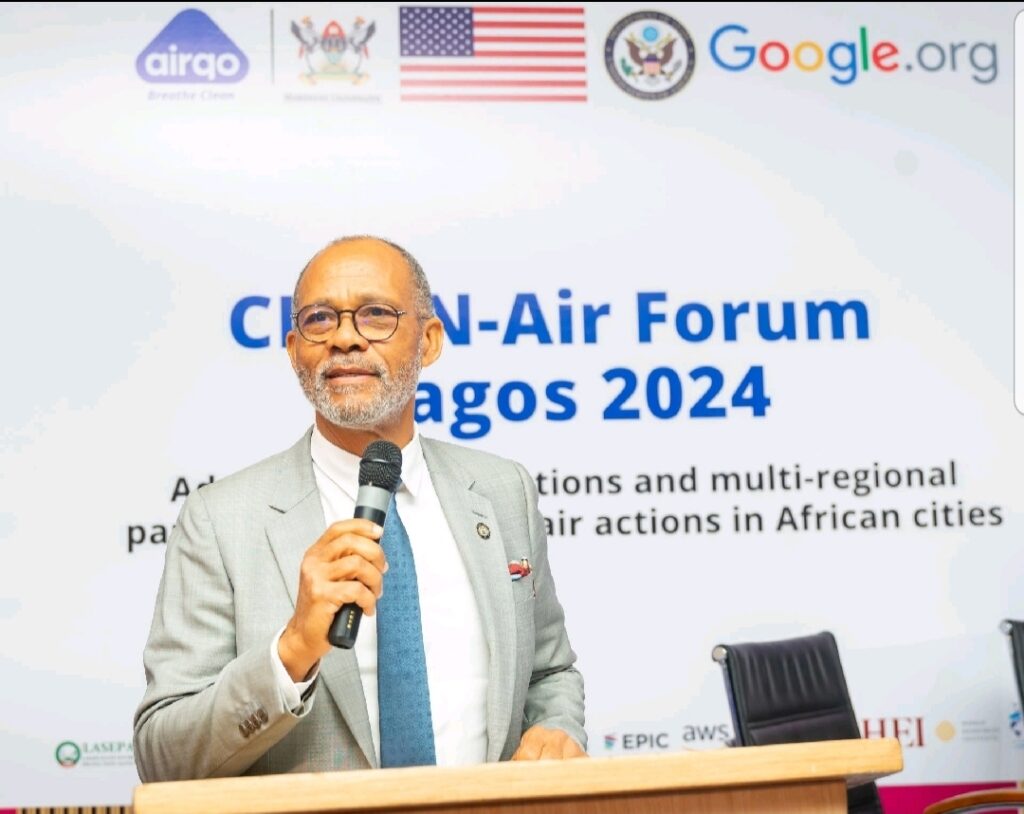
Solutions and Strategies
Addressing the specific causes of pollution in Lagos, Dr. Ajayi noted various initiatives targeting different areas. “For example, in Bariga, we are building a team for the women to tackle pollution because of their fish smoking trade,” he said. “In several other areas like in Ikorodu, we are insisting that organizations and industries install pollution abatement plants.”
“In other areas in Lagos, we ensure that people reduce the amount of pollution they emit into the system. We also stop open burning in many communities, we ensure that their waste is properly disposed in a more controlled way and we hand solid waste to LAWMA and ensure that they are properly disposed,” he added.
Dr. Ajayi further noted that LASEPA has undertaken extensive publicity, sensitization, and awareness creation campaigns. “We shut down agencies that have refused to install pollution abatement plants,” Ajayi stated. “For instance, several times, you see in the media that a lot of companies have been shut down primarily due to air pollution.”
He highlighted ongoing initiatives to improve indoor air quality by promoting clean energy for cooking and providing free gas through recycling initiatives. The agency also enforces smoking laws to reduce indoor air pollution. “As far as indoor air quality monitoring or ambient monitoring, what we’ve done so far in Lagos is to make sure that we sort of change the kind of way people cook. So conversion to clean energy, and then replace trash for gas. So we collect plastic waste, give them cooking gas, and try to use very cheap alternatives,” he explained.
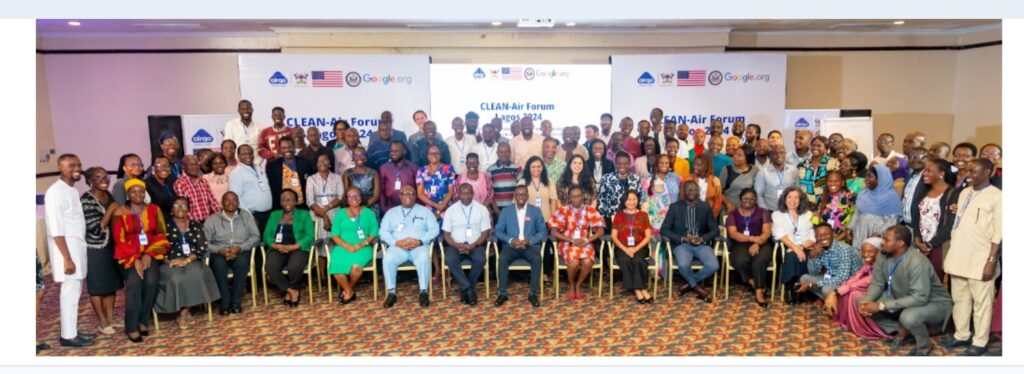
Working with other foreign universities for a cleaner cooking gas method, Dr. Akayi explained that the gas is given for free, adding that “On the other hand, we are going really strong with our smoking law. Indoor smoking is also a thing, you know, particularly around people who don’t want smoke, and in spaces where people go for recreation and for relaxation. So we are going really hard on people, for indoor smoking. And I think that will help a great deal in reducing pollution at that level.”
Across the region, Farah Kazi, Project Manager EPIC Air Quality Fund shared insights about the significant health burden of air pollution in Africa and Asia. Whereas air quality monitoring is a good first step, sustained monitoring proves more effective, providing the necessary foundation for actionable solutions. The report emphasized that local actors in various African countries are well-positioned to bridge these data gaps.
Dr. Allison Hughes, Senior Lecturer University of Ghana discussed leveraging various types of data for air quality research. He emphasized the critical importance of considering the economic impacts of air pollution, despite the limited access to air quality data. Dr. Hughes highlighted that low-cost sensors can help overcome obstacles related to air pollution monitoring, such as high costs and the need for capacity building, thereby enhancing the effectiveness of research and policy initiatives.
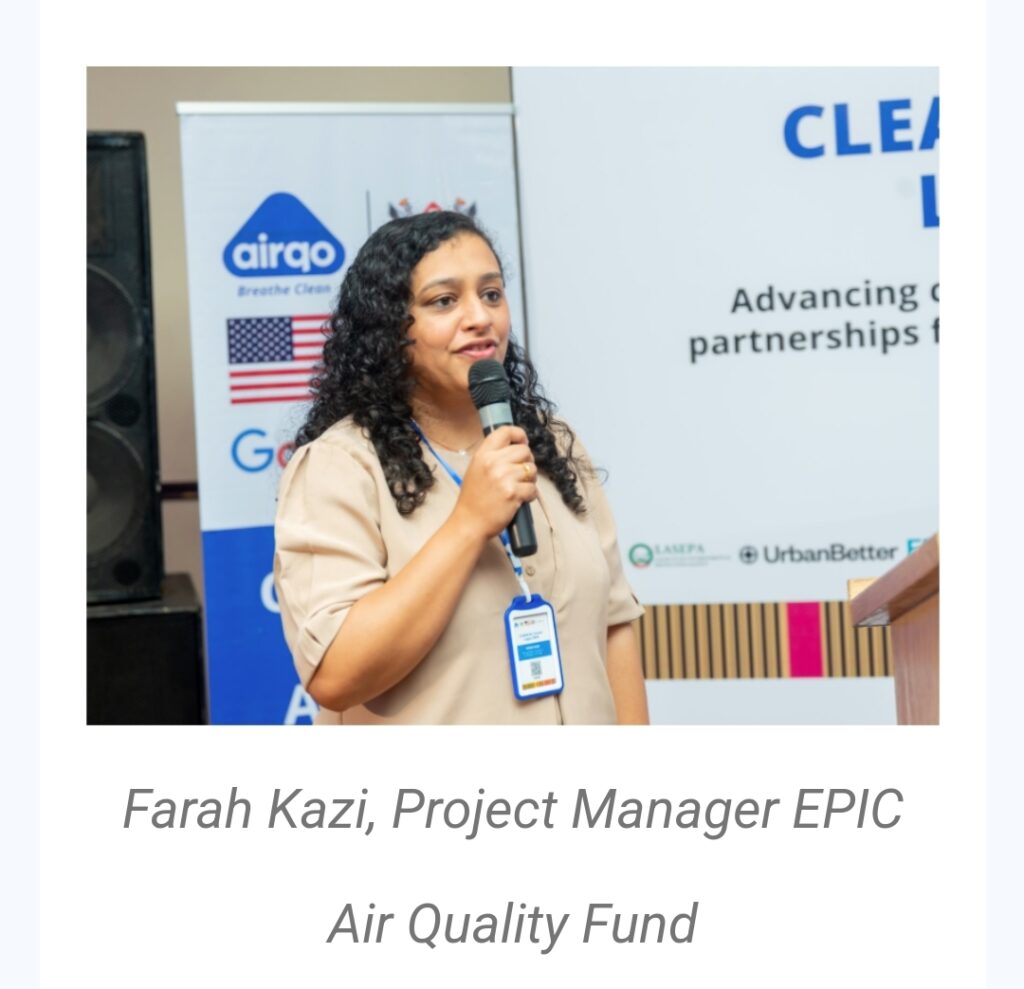
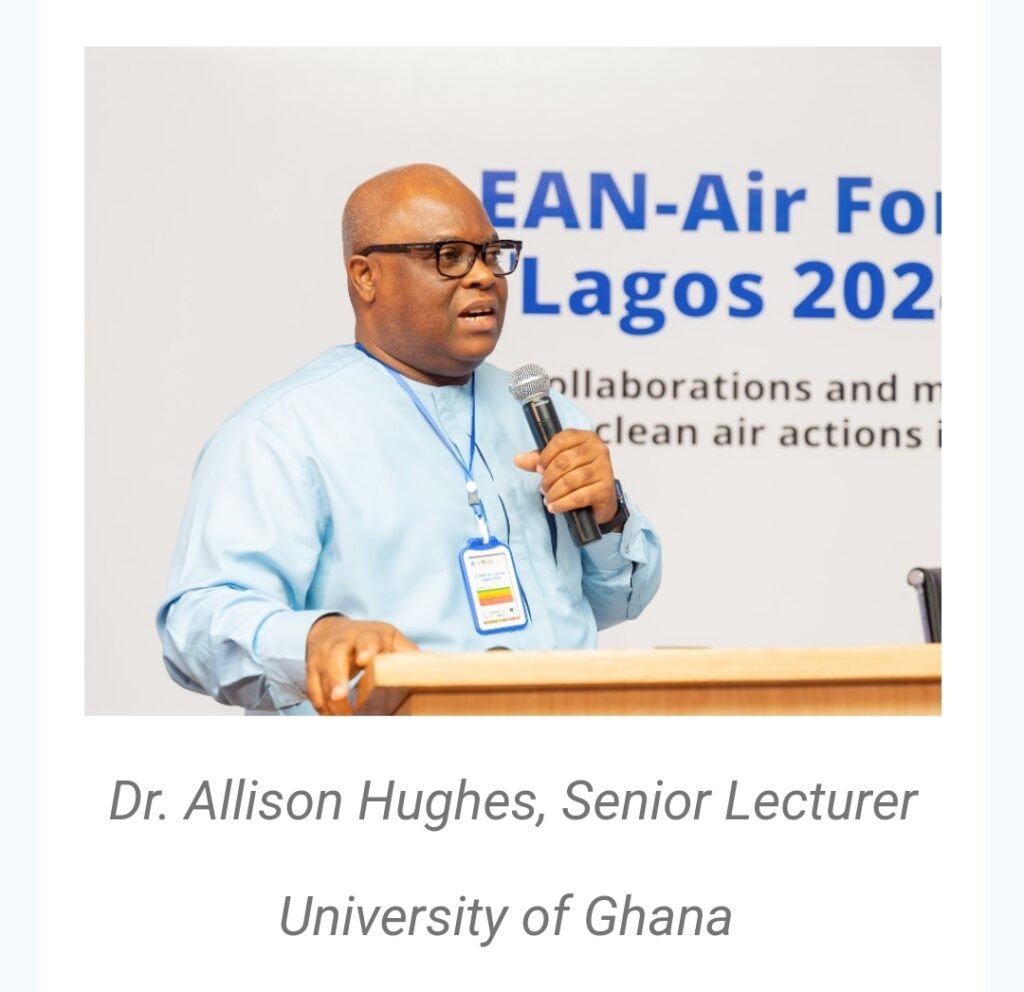
Tackling Vehicular Emissions
Vehicular emissions are a significant source of air pollution in Lagos, with the city’s notorious traffic congestion contributing to high levels of nitrogen dioxide, carbon monoxide, and particulate matter. The aged and poorly maintained fleet of vehicles exacerbates the situation, as they tend to emit higher levels of harmful substances compared to newer models with better emission control technologies.
In an exclusive interview with our reporter at the CLEAN Air Forum, Engineer, Osa Konyeha, Technical Adviser, Corporate and Investment Planning at the Lagos Metropolitan Area Transport Authority (LAMATA), highlighted initiatives to optimize public transportation systems and reduce vehicular emissions.
“We are at the moment carrying out a project called the Bus Industry Transition Project (BITP). That project seeks to look at ways in which we can encourage the informal sector players to join in the formal sector, to become the related players in the transportation space. And that entails forming a cooperative, bringing in cleaner energy buses and running under the regulated space,” Konyeha said.
“We understand that informal sector players are very experienced in the transportation field, so we’re not trying to take away their livelihood. We are trying to encourage them to carry out their activities in a cleaner manner and under a regulated law. We will continue to work with the unions and the informal sector to better our relationship and we’ve been enjoying better relationships with them,” he added.
Konyeha shared further that “And we can only carry on with our stakeholder engagement with them and to continue with the aid of our BITP project to continue to encourage them to work with us in order to provide the best service that we can for the citizens of the Lagos state. So it’s a continuous process and we are getting a lot of traction at the moment with working with the unions.”
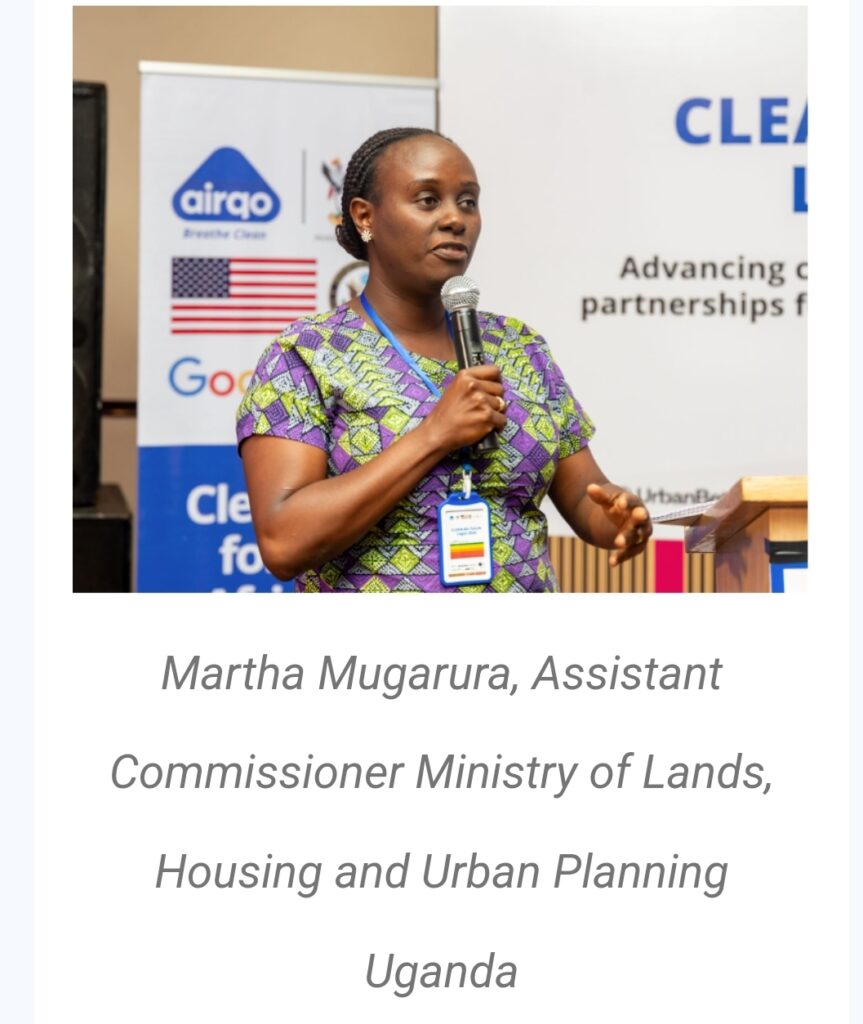
Martha Mugarura, the Assistant Commissioner Ministry of Lands, Housing and Urban Planning Uganda presented data and policy perspectives from Uganda’s urban sector, highlighting the common climate change challenges impacting Kampala city. As a solution, she proposed implementing smart city solutions that utilize digital technologies to enhance sustainability and efficiency. These solutions aim to address climate change challenges more effectively and promote resilient urban development in Uganda.
Dr Rose Alani, the project lead for Air Quality Monitoring Research Group, University of Lagos shared progress on ongoing air quality research collaborations driven by data and participatory implementation. Through the project, more than 30 low-cost sensors and three reference monitors have been in Lagos, data has supported periodic awareness championed by LASEPA and youth-led advocacy led by UrbanBetter, student engagement among others.
Africa’s journey towards sustainable development necessitates a balanced approach that prioritizes both progress and environmental integrity. As air pollution continues to rise, strategic partnerships, data-driven policies, and community engagement are critical to ensuring cleaner air and healthier populations. The ongoing efforts in Lagos and other African cities demonstrate a commitment to addressing air quality challenges and safeguarding public health.





Comments